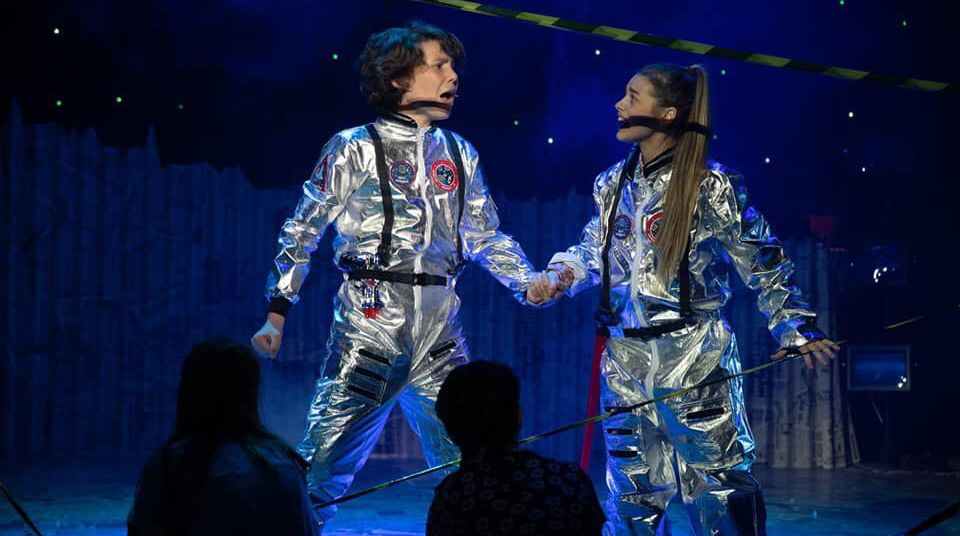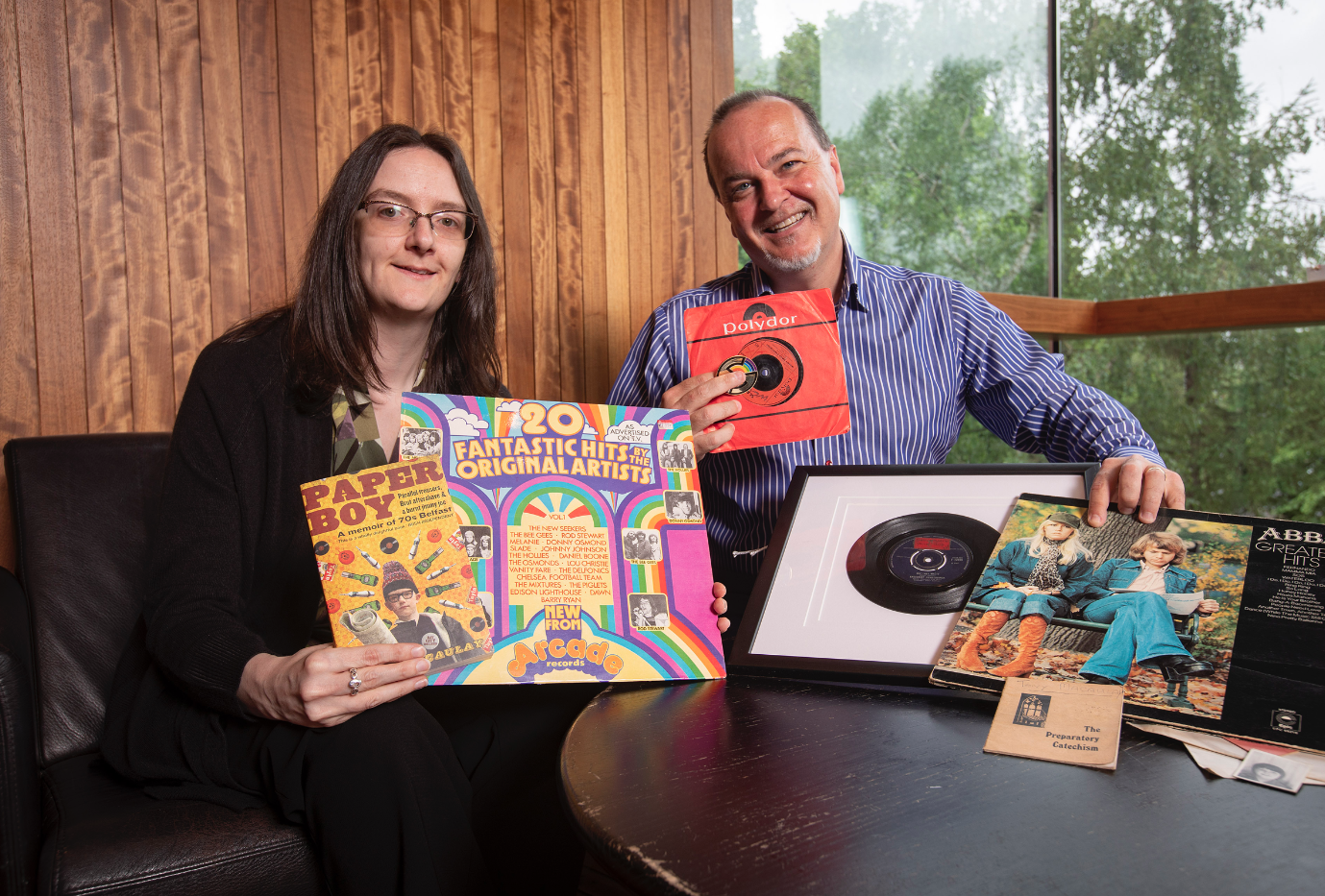
Dr. Tony Macaulay is a bestselling author, leadership consultant, peacebuilder, broadcaster and suicide prevention advocate from Northern Ireland. He was raised at the top of the Shankill Road in West Belfast at the start of thirty-five years of “The Troubles” in Northern Ireland, an experience that has shaped his life. He has spent the past 35 years working to build peace and reconciliation at home and abroad, working with hundreds of youth and community groups to break down barriers of mistrust, hatred and division. He has applied his experience and learning into leadership development and management of change and transition in many voluntary, public and private sector organisations.
His memoirs of growing up in Belfast during the Troubles, Paperboy (HarperCollins 2011), Breadboy (Blackstaff Press, 2013) and All Growed Up (Blackstaff Press, 2014), have been critically acclaimed bestsellers in Ireland. His autobiography Little House on the Peaceline (Blackstaff Press, 2017, 2nd edition, so it is, 2022) tells the story of how he lived and worked on the peaceline in Belfast in the 1980s.
International Author
His debut novel Belfast Gate (so it is, 2019) is a satirical comedy drama set in 2019 about a group of Catholic and Protestant women who start a campaign to take down Belfast’s 50 year old peace walls. The novel was book of the week in the Irish News.
Paperboy was adapted into a hit musical by Andrew Doyle & Duke Special at the Lyric Theatre in Belfast in 2018 and 2019. In the summer of 2022 the same team produced a musical adaptation of the sequel, Breadboy, once again to sell out audiences in the Lyric Theatre in Belfast.
Tony has performed book readings at a range of respected literary festivals including: Aspects Literature Festival, Edinburgh Book Fringe, Belfast Book Festival, Dublin Book Festival, 4 Corners Festival and Féile an Phobail. He is now a regular speaker on Northern Ireland, peace building and creative writing at universities and colleges in Europe and the USA. He has given talks at Lehigh University and DeSales University in Pennsylvania, the University of Denver, Colorado, the University of Notre Dame and Goshen College in Indiana and Pepperdine University, University of California, Irvine, Loyola Marymount University, Los Angeles and California State University, Dominguez Hills in California.
In 2012 the W.B. Yeats Society of New York invited Tony to present a reading of Paperboy in the National Arts Club as part of the 1st Irish Festival. In 2013 and 2014 he performed a series of readings from his books at the New York Irish Center as part of the 1st Irish Festival and returned to the National Arts Club in New York to preview ‘Little House on the Peace Line’ in 2016.
As a prominent writer, journalist and broadcaster, Tony has contributed to NVTV, BBC Radio 4, BBC Radio 2, Downtown Radio and BBC Radio Ulster. He has also written for the Belfast Telegraph, the newspaper he once delivered.
In 2014 Tony was asked to present the Duke of Edinburgh Gold Awards to young people from Northern Ireland on behalf of the Earl of Wessex. In 2016 Tony was asked to present the Duke of Edinburgh Gold Awards to young people from Northern Ireland on behalf of HRH The Duke of Edinburgh. In 2016 Tony’s first three books were translated into Braille by prisoners in the Braille Unit in Maghaberry Prison. In 2019 Tony was awarded an Honorary Doctorate by Ulster University for services to literature and peace building at home and abroad.




Tony coaches a youth empowerment project in the slums in Kampala, Uganda and is on the steering group developing a Rwanda Peace & Reconciliation Centre. It was on a visit to Kigali in 2017 that he met Juvens Nsabimana co-author of his latest book Kill the Devil: A Love Story from Rwanda. Tony explains:
‘The day I met Juvens in Kigali I had been visiting his country to learn about the incredible work of reconciliation since the genocide in 1994, when a million people were killed in a hundred days. I had visited genocide memorial sites that left me unable to say or pray a single word. I saw the worst that human beings can do, but I also experienced the best.
On that day, I was privileged to visit a local village to hear stories of reconciliation from perpetrators and survivors of the genocide. One woman told the story of how she came to forgive the neighbour who had killed her husband. Then I listened to the man she had forgiven share how he took responsibility and sought forgiveness for the pain and suffering he had caused her family. Survivors and perpetrators from the same village stood up in pairs and shared similar stories of reconciliation. I’d never heard the like of it. Certainly not where I come from. I asked how they had managed to find reconciliation after such horror. The answer was simple. They said it was love.
Then they asked me about reconciliation in my country, and you know what happened? In a remote village nestling between the beautiful hills of Rwanda, the reconciled survivors and perpetrators of genocide told me they would pray for my land, that the walls that still divide our hearts and our streets would one day be torn down forever. That we too would know peace and forgiveness and reconciliation.
This experience inspired me to ask Juvens if he would collaborate with me on a story of reconciliation. He didn’t have a computer and over the next few weeks he spent an hour a day in the American Embassy (which offers free computer use) to write the first synopsis of a screenplay that ultimately became Kill the Devil.’

We are featured

Paperboy exhibition calls for public help to celebrate 1970s Belfast

Honorary Graduate Dr Tony Macaulay, July 2019

Northern Ireland writer behind Shankill memoir honoured for his peace building, July 2019
